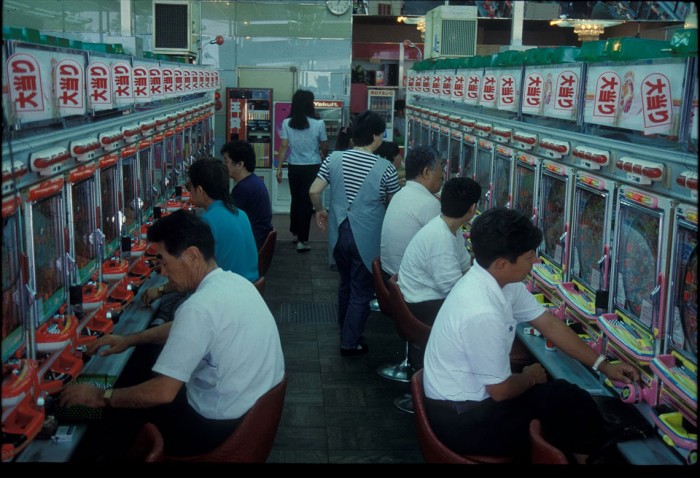
Very few types of gambling are legal in Japan except for betting on horse-racing, motorboat racing and so on. Pachinko is the one of the few games which is legal although pinball games abound especially at festivals. Card games such as poker are not legal if played for money. Mahjong is commonly played, often for small or medium stakes in private, but this game which is Chinese in origin is again illegal if played for money. There is a legal lottery which gives its profits to education and tickets for this are widely available from street corner vendors who vie for patronage by displaying numbers and amounts won in the past on tickets sold at that particular booth.
Each New Year, billions of greetings postcards are printed. For a small surcharge, the post office put on a lottery number and everyone anticipates the thrill of winning something special on January 1.
In fact despite the illegality, gambling is widely available. Mahjong in particular can be a very expensive game because the stakes can double and double again rapidly. Most illegal gambling is controlled by the “yakuza” or criminals. Police have traditionally tolerated such gambling provided it is not too visible or troublesome.

